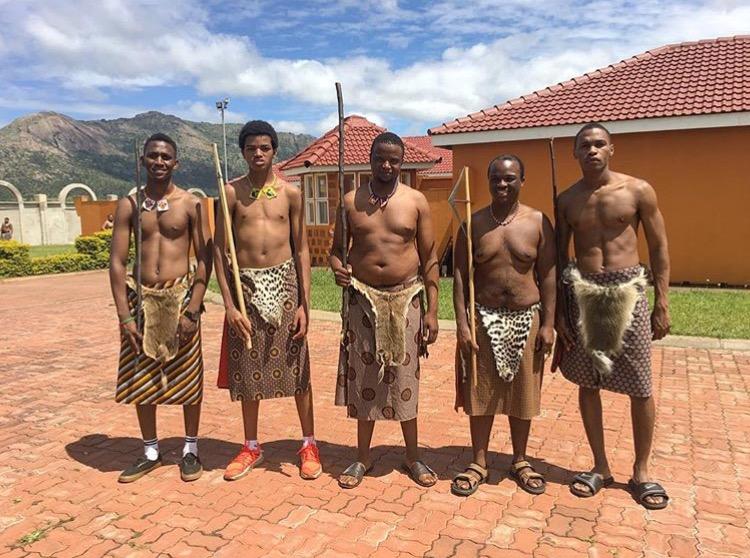Students from Swaziland Adapt to Campus Life

The ten students from Swaziland currently enrolled at Lake Forest College are frequently asked, “Where is that country?” and “How did you get here?” because many Americans are unfamiliar with the country.
Swaziland is a landlocked country in Southern Africa, located between South Africa and Mozambique with a population of 1.2 million people. The rich history of the Kingdom of Swaziland has one of the last remaining monarchies in the world, as the country is ruled by King Mswati III.
Most Swazi students make their way to Lake Forest through United World College- Waterford Kamhlaba, an international high school located in Sidwashini, Swaziland. Since 2007, 47 students have come to the College from UWC-Waterford.
Sipho Ntshangase ’15 attributed his enrollment at Lake Forest College to his secondary education at UWC-Waterford. He credits that education and experience as having helped create a smooth transition to college when he arrived in the United States in 2011. “I was fortunate enough to have exposure to people from around the world at my high school,” he said. This exposure made “it really easy for me to transition to Lake Forest. I am from a small country, my high school was small, and Lake Forest being small also helped me feel comfortable in the transition.” Ntshangase said that something he wishes the student body knew is “where Swaziland is on the map.”
Knowledge of the African continent’s geography, as a whole, is something Jabulani Sifundza ’19 realized many students are unfamiliar with. “ I’d like [students] to know that my country is Swaziland and not Africa,” he said. “ Africa is huge. It’s very unlikely that I will know someone from Ethiopia or Ivory Coast because those countries are so far apart.”
Sifundza said he found it difficult to adjust to American culture. “The culture, in terms of how people are and how they interact, is very different, and I don’t think I have fully adjusted to that because [I’m] still learning new things about the culture here each day,” he said. “An example is how the holidays are celebrated, as well as calling adults by their first names. Adjusting socially was the easiest part, because I knew a lot of people at the college when they got here because a lot of them went to my high school.”
Mhlonishwa Mabuza ’15 offers another perspective. “As much as there are cultural barriers in transitioning to Lake Forest, you find that most Africans come to Lake Forest and build their own communities,” Mabuza said. “Many students find it hard to fit into the American culture, [so] the strong representation of Swazi students helped to ease the transition for most of the students.”
The cultural differences in the U.S. were challenging, yet inspiring, for Sakhile Nkambule ’17. “The [transition] was extremely difficult, but it was also exciting to be in a completely different environment with so many subtle cultural differences,” said Nkambule. “People are not as friendly here, but the level of competition inspires excellence.”
Strength in numbers is undeniable for the Swazi students who have attended Lake Forest College over the years. Far from home and relatively unknown, Swazis have represented their country with pride.